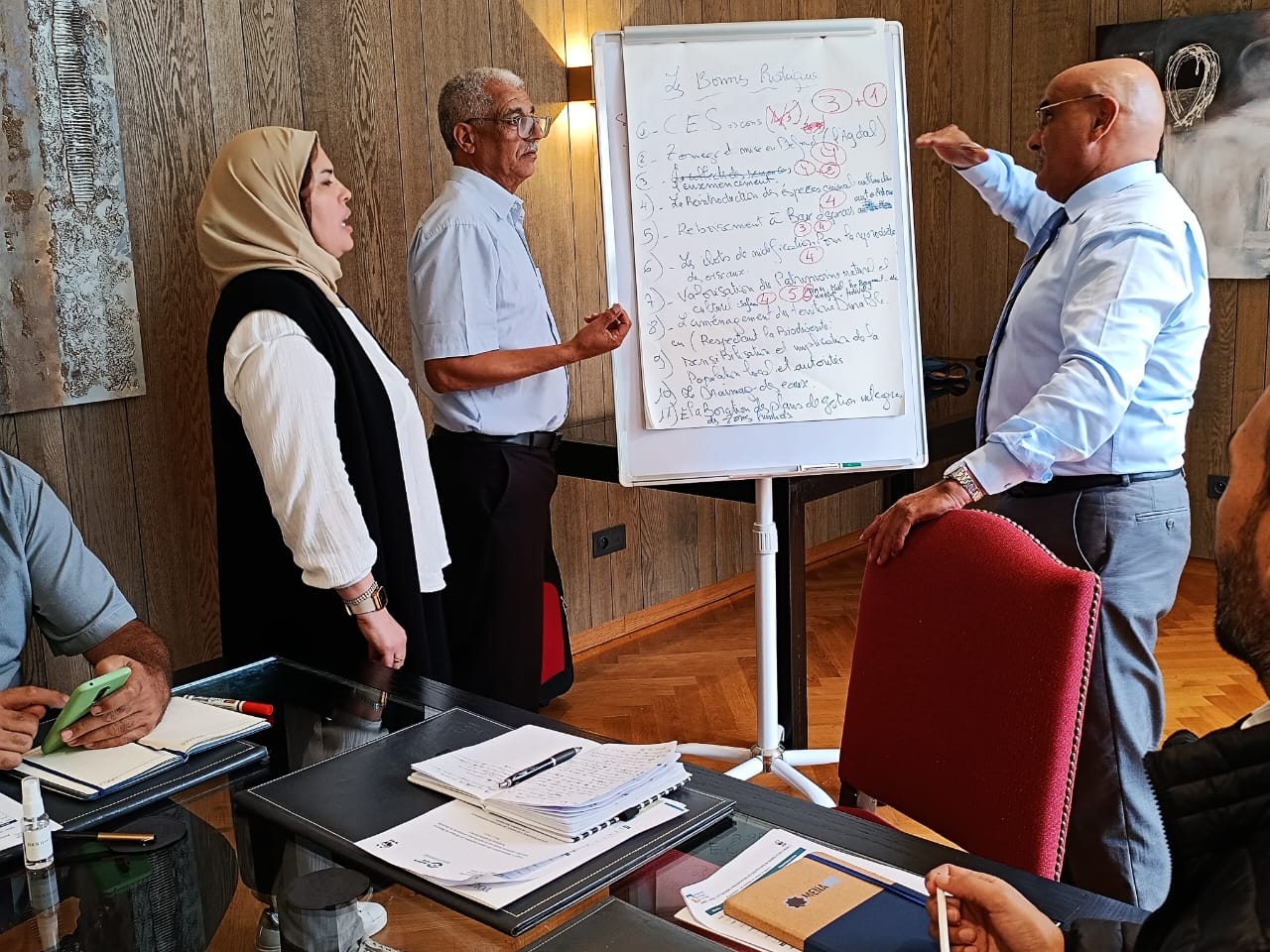
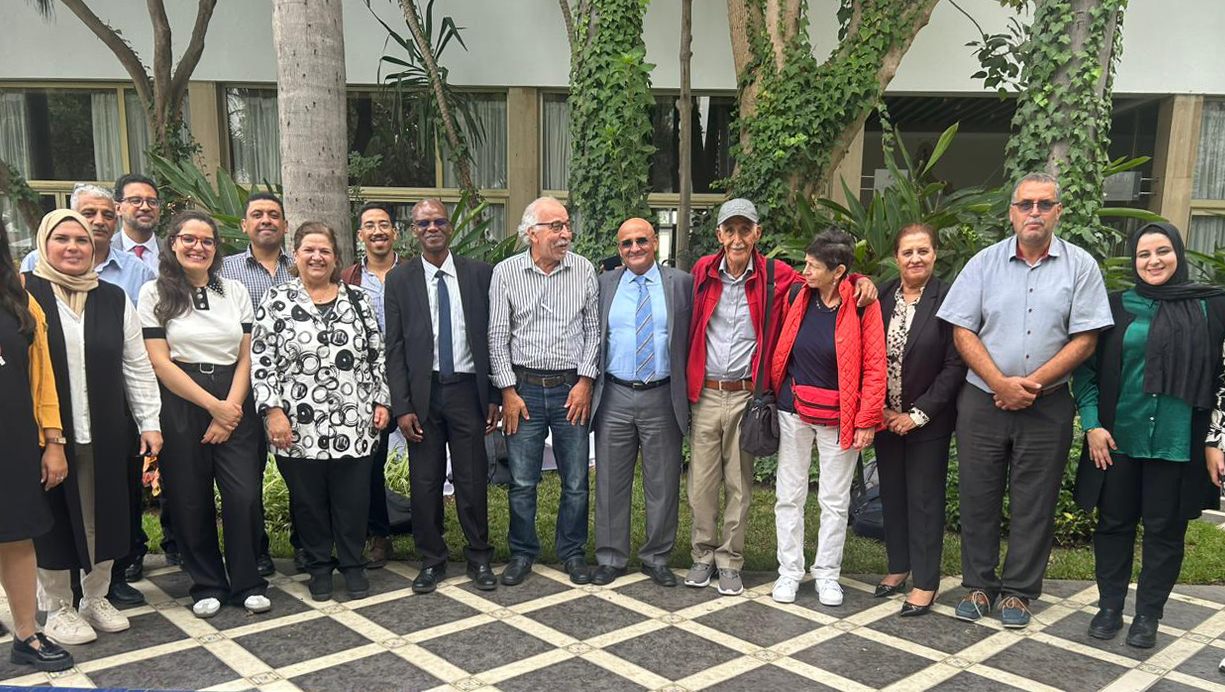
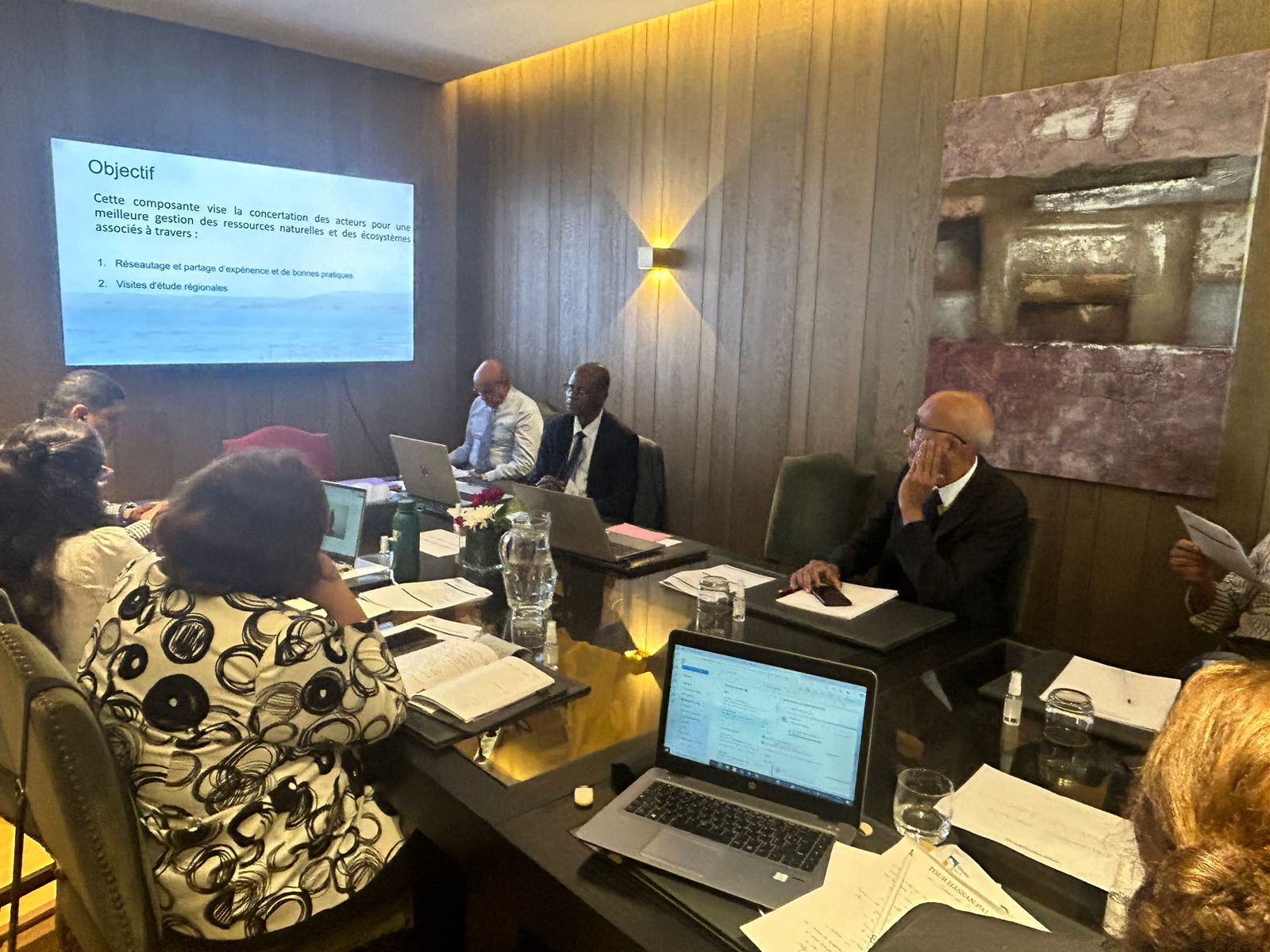
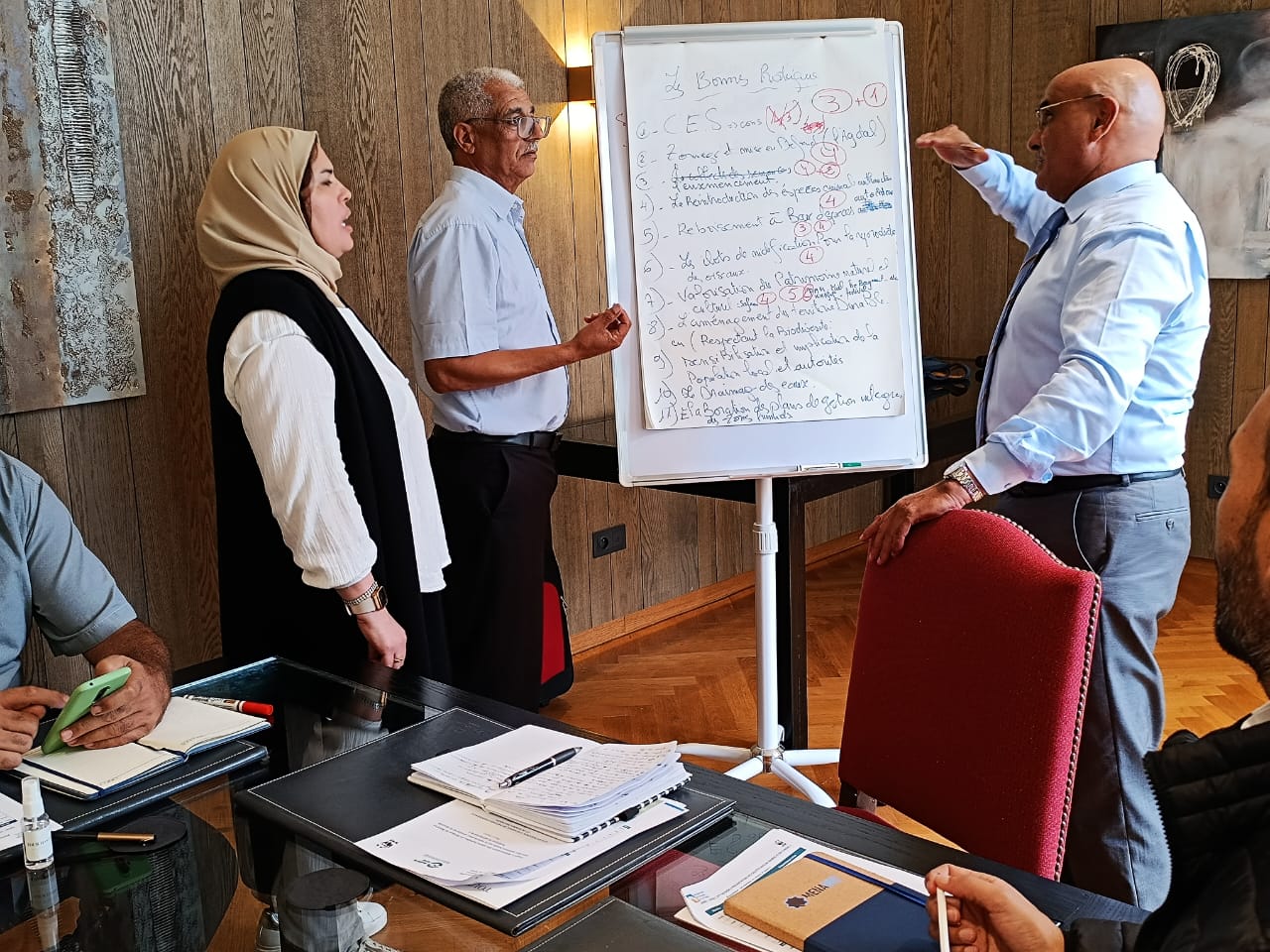
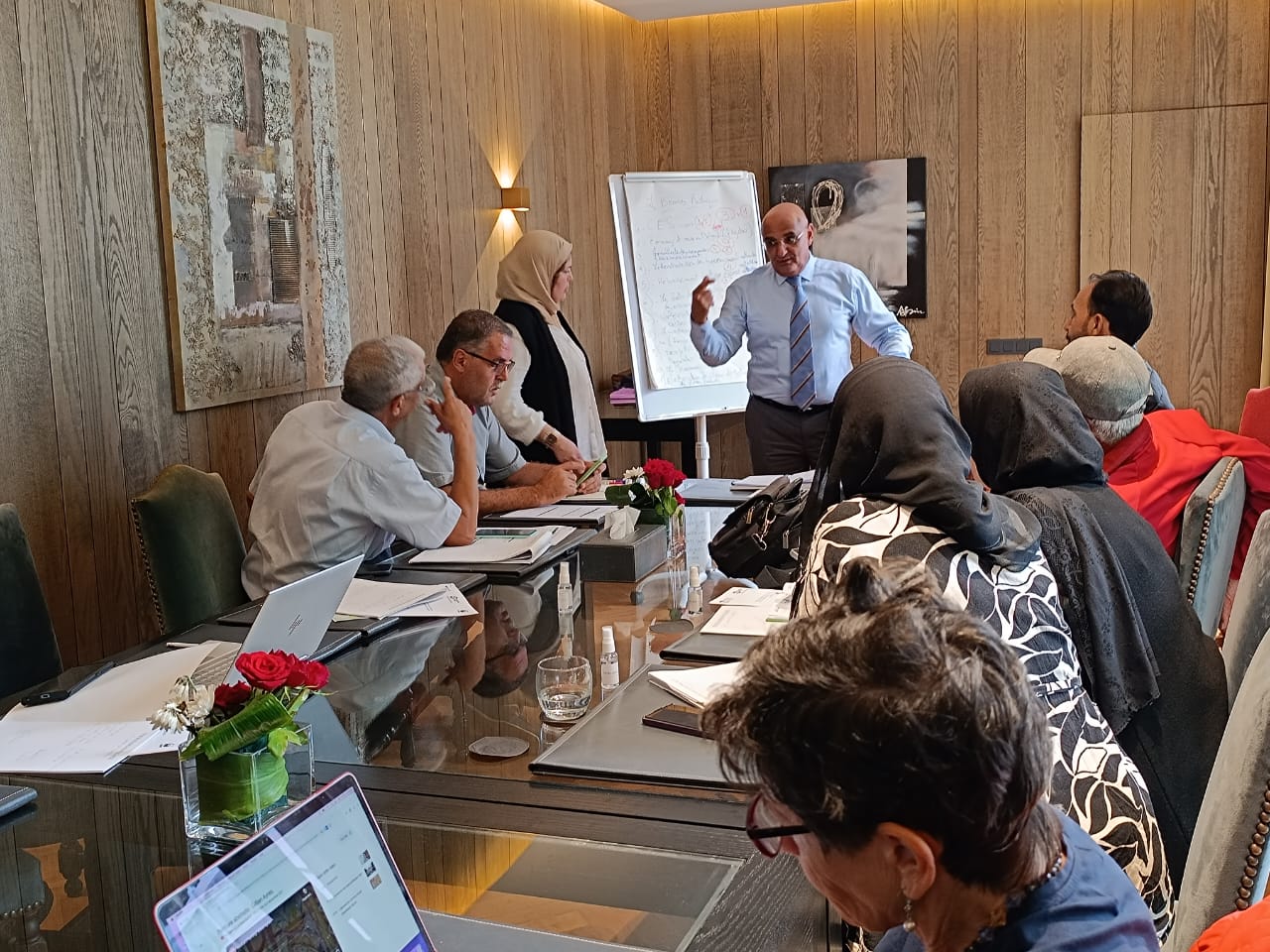
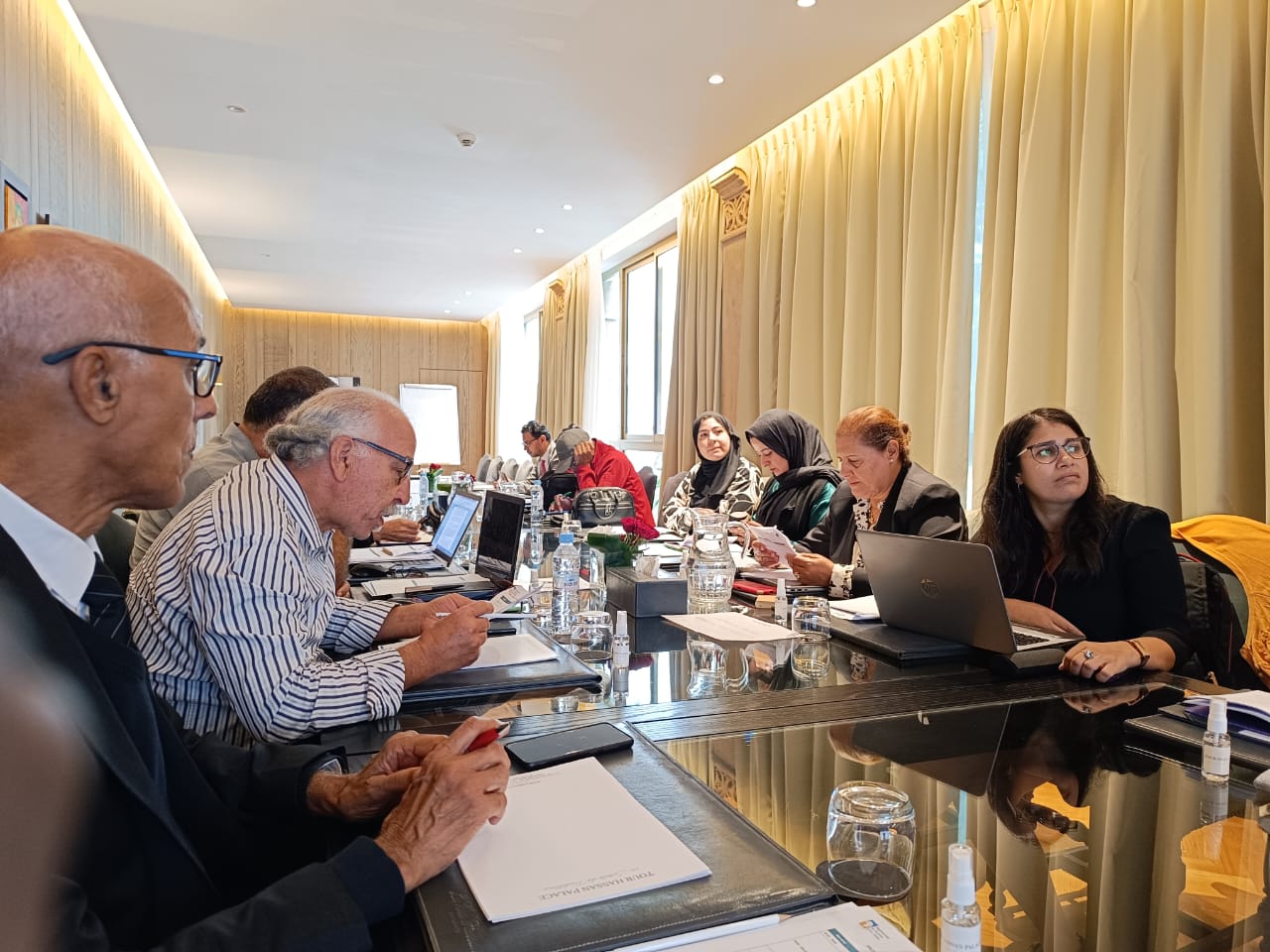
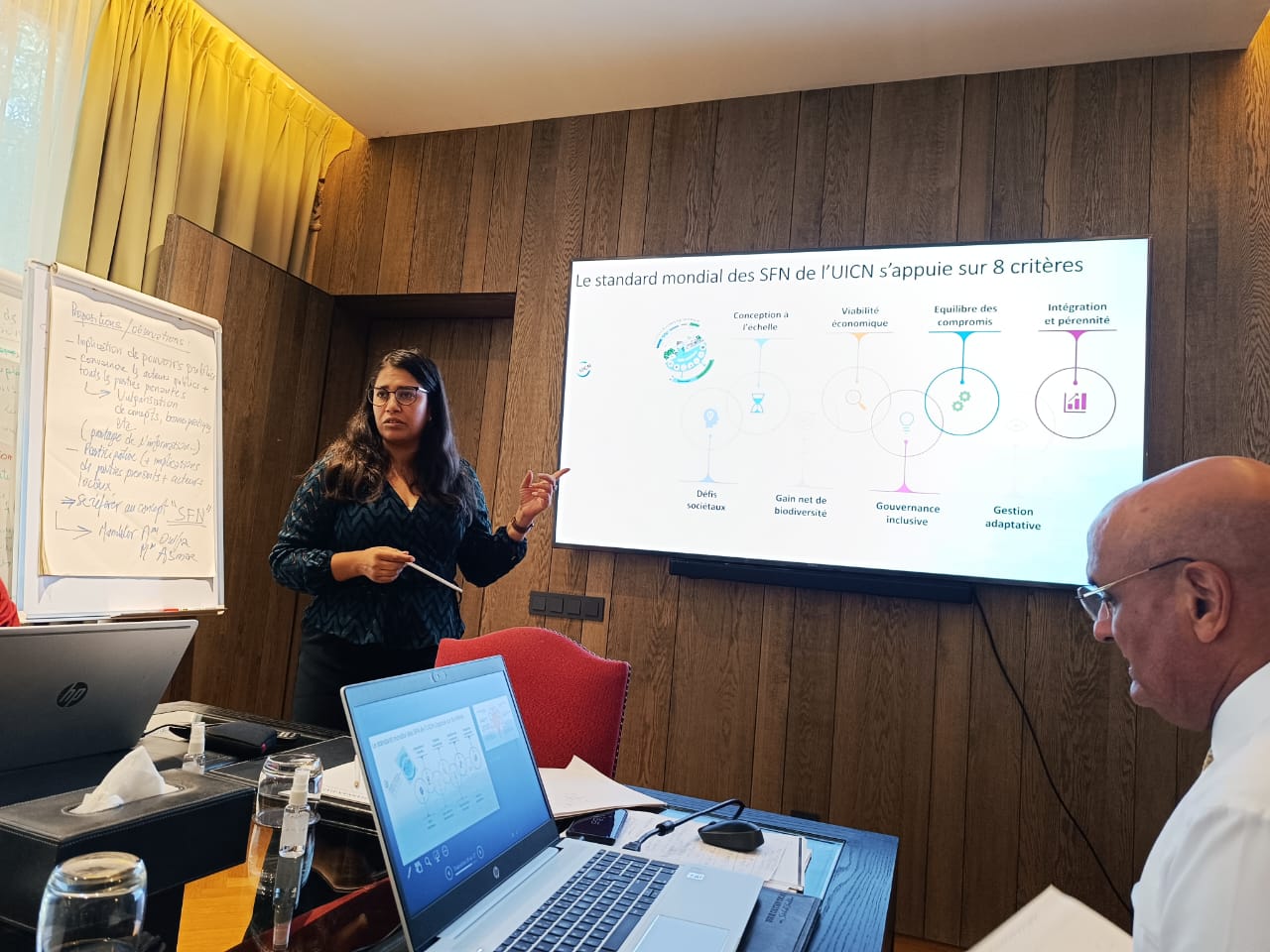
Commitments for synergy between the stakeholders and advocacy for the restoration of wetlands in North Africa, as a nature-based solution, Rabat, 16 - 17 October 2024
An experience and good practices exchange and sharing regional workshop was held in Rabat (Morocco), as part of the "Restoration of wetlands in North Africa as a nature-based solution to strengthen water and food security" project.
This event was organized by the Sahara and Sahel Observatory, in partnership with WWF-NA, and brought together twenty experts and stakeholders from Morocco and Tunisia. Members of the coordination committee of the network of experts, representatives of public institutions in charge of water resources management and the environment in both countries, as well as civil society actors took part in the event.
The opening ceremony was marked by the speeches of Mrs. Asma Yahyaoui, Freshwater Program Officer at WWF-NA, Mr. Mohamedou Baba Sy, OSS Water Department Director, and Mr. Sidi Imad Cherkaoui, WWF-NA Coordinator in Morocco who welcomed the participants and expressed their warm and sincere thanks for their commitment.
Mr. Mohamedou Baba Sy highlighted the fruitful cooperation between the OSS and WWF-NA. He highlighted the importance of wetlands in North Africa while calling for the promotion of Nature-Based Solutions (NBSs) for the sustainable management of water resources and the restoration of degraded ecosystems in wetlands. Mrs. Asma Yahyaoui took the floor to welcome the positive dynamic created by the project in strengthening dialogue between stakeholders.
The presentations stressed the importance of involving local communities in the preservation of wetlands, through two case studies in Morocco and Tunisia that addressed the issue of biodiversity degradation in the Sebou basin (Morocco) and the impacts of human activity on the Ghar el Melh site (Tunisia).
The group work reviewed the results of the activities carried out on the Sebou and Ghar el Melh pilot sites, identifying challenges and proposing appropriate solutions. It was agreed to produce a collection of good practices based on the IUCN Global Standard for Nature-Based Solutions (NBSs), which shall be completed by January 2025.